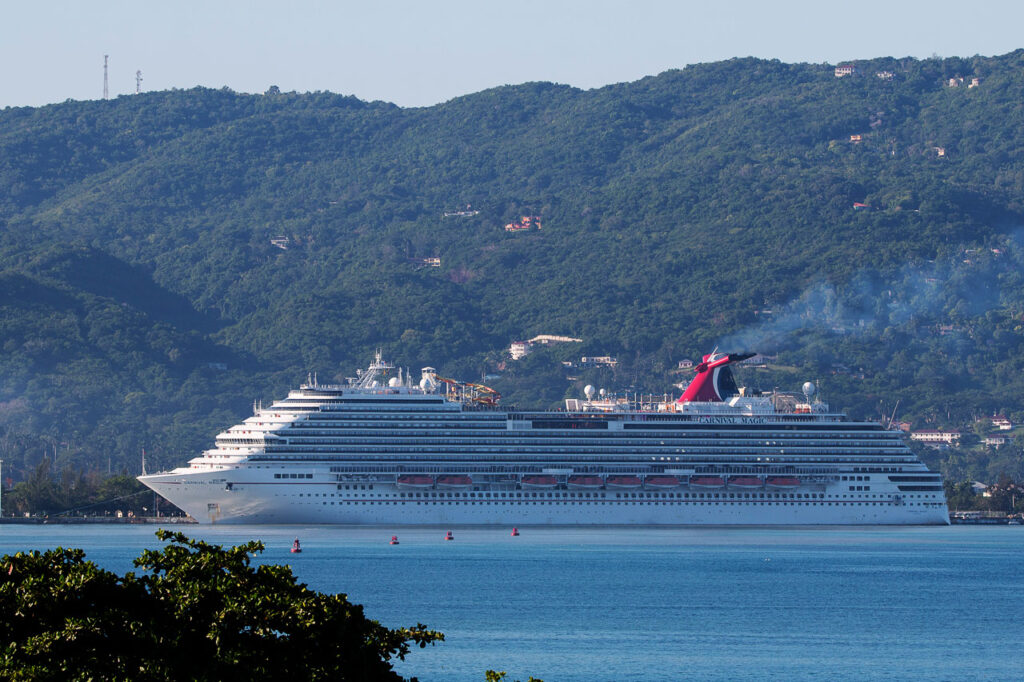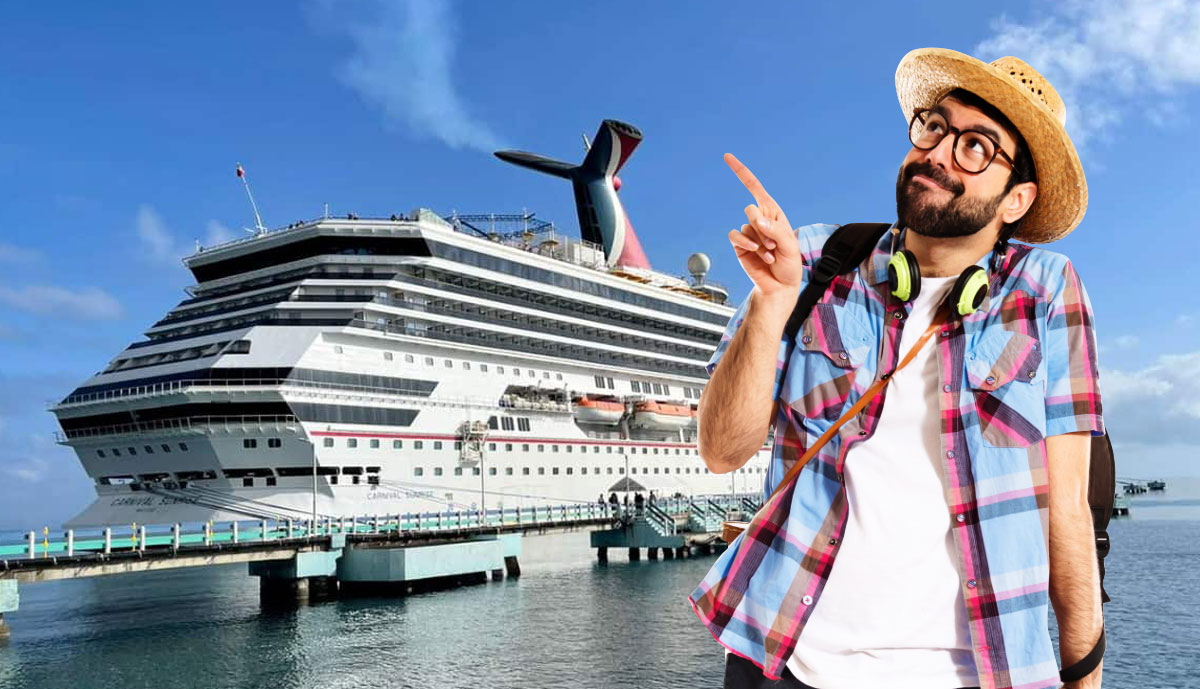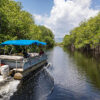The Caribbean has been a magnet for cruise ship tourism, and Jamaica stands as a significant player in this realm, drawing in thousands of tourists annually. This article explores the multifaceted impact of cruise ship tourism in Jamaica, encompassing economic prosperity, environmental conservation, cultural interchange, and the challenges posed by its rapid growth.
Cruise ship tourism operates as a unique form of travel where passengers embark on a journey while the main mode of transportation, their vessel, becomes their home base. This industry has witnessed astonishing growth, offering travelers the allure of diverse destinations and a myriad of onboard amenities.
Cruise ship tourism has fostered cultural exchange, enabling visitors to immerse themselves in Jamaica’s rich heritage, music, cuisine, and traditions, thereby promoting global understanding and appreciation.
The Rise of Cruise Ship Tourism in Jamaica
Jamaica has emerged as a favored destination for global cruise liners, with its picturesque coastlines, historical landmarks, and vibrant culture drawing in tourists from around the world. The impact of this growth, however, extends beyond just the economic realm.
The influx of cruise ship tourists has significantly fueled local businesses, ranging from craft vendors to tour operators, thereby providing a vital stimulus for the economy. These visitors actively engage in various activities, depicting the burgeoning potential for commercial enterprises.
The surge in tourist arrivals has led to a rise in employment opportunities across various sectors, such as hospitality, transportation, and retail, contributing to a reduction in unemployment rates and an improved standard of living.
The industry has been a consistent source of revenue for the Jamaican government, generated from port fees, taxes, and permits, which are utilized for infrastructure development, public services, and tourism promotion.
Falmouth Port
Environmental Concerns
The heightened volume of tourists poses a challenge to waste management and pollution, demanding sustainable solutions to ensure the preservation of Jamaica’s natural beauty and marine ecosystem.
Efforts to safeguard marine life and habitats are essential, emphasizing the need for responsible environmental practices and the enforcement of stringent regulations to mitigate the environmental impact of cruise tourism.
Infrastructure Development
The evolving needs of tourists have catalyzed infrastructure development, driving investments in transportation, amenities, and attractions, indirectly benefiting local communities and enhancing their living standards.
The escalating numbers of tourists has strained local resources, triggering concerns related to waste disposal, water scarcity, and energy consumption, necessitating sustainable resource management strategies.
The encroachment of tourism has led to a gradual transformation of traditional lifestyles, impacting local customs, social dynamics, and cultural authenticity, prompting responses amid the delicate balancing act.

Role of Government in Managing Cruise Ship Tourism
Government policies play a pivotal role in regulating, monitoring, and promoting sustainable practices within the cruise ship tourism sector, ensuring alignment with national development objectives. Charting future policy directions involves fostering a balance between economic growth and environmental preservation, alongside community integration and empowerment.
The implementation and enforcement of eco-friendly regulations and practices are pivotal in curtailing the adverse ecological impact, while inspiring responsible tourism behavior among cruise operators.
Engaging local communities in decision-making processes and sustainable initiatives instills a sense of ownership, fostering mutual respect and understanding between stakeholders.
Airport Transfers
Public Perception and Feedback
Diverse experiences of both residents and tourists serve as crucial feedback, delineating the positives of economic prosperity and cultural exchange, alongside the negatives of environmental strain and altered community dynamics. Understanding the perspectives of residents and tourists is imperative, presenting an opportunity to address concerns, rectify imbalances, and establish a harmonious coexistence.
Long-term Sustainability Efforts
Adopting sustainable tourism practices, including waste reduction, energy efficiency, and nature conservation, is paramount to securing the long-term viability of cruise tourism in Jamaica. Investments in eco-friendly infrastructure, renewable energy sources, and environmental education initiatives can contribute to minimizing the industry’s ecological footprint. Contrasting the effects of cruise ship tourism with alternative forms of tourism helps identify distinctive impact areas, guiding policies and strategies for sustainable development.
Community Involvement and Empowerment
Empowering local initiatives, including cultural preservation projects and small business support, bolsters community resilience and fosters a sense of pride in their heritage and identity.
Investing in local capacity building and skill development programs advances opportunities for meaningful engagement within the tourism value chain, promoting inclusivity and equitable benefit distribution.
Encouraging tourists to engage with local vendors and activities spurs economic circulation within communities, strengthening the symbiotic relationship between visitors and locals.
Embracing technology and innovation within the cruise ship industry can drive efficiency, enhance environmental performance, and elevate the overall guest experience.

Impact on Local Markets and Small-scale Vendors
Cruise tourists inject revenue into local markets, benefiting small-scale vendors by purchasing goods, crafts, and local merchandise. This inflow of funds ripples through the local economy, fostering growth and livelihood opportunities. Small-scale vendors gain exposure to a global audience, showcasing their products to tourists from diverse backgrounds. This exposure can potentially lead to expanded markets beyond the shores of Jamaica, aiding in long-term growth.
Conclusion
The impact of cruise ship tourism in Jamaica is a tapestry woven with contrasting threads of economic prosperity, environmental challenges, socio-cultural transformation, and community resilience. As Jamaica navigates toward sustainable tourism practices, the imperative lies in harmonizing these elements to foster a future where both visitors and locals thrive in unison.
Tour Packages
Our cruise excursion tour packages offer travelers a curated experience at various ports of call during their cruise, encompassing guided tours, recreational activities, and cultural exploration. These packages provide opportunities to explore the island of Jamaica.






Leave a reply